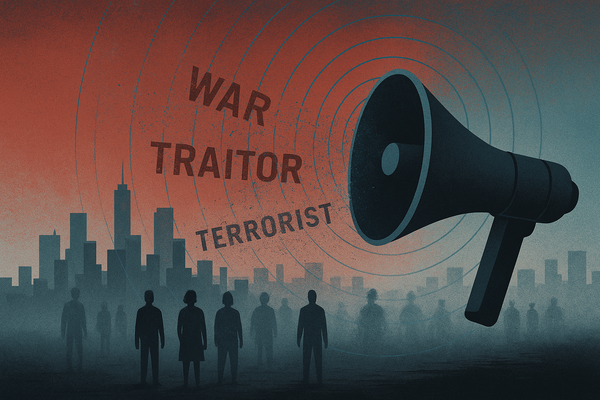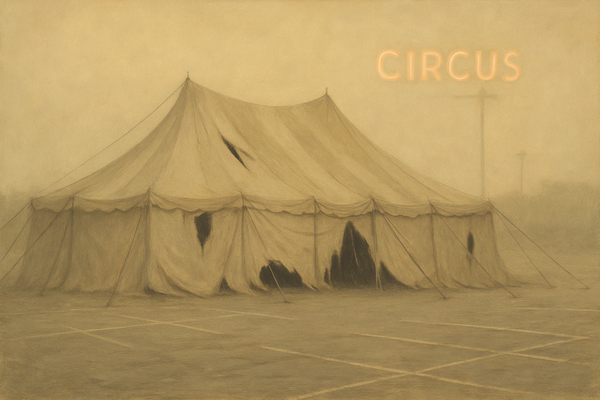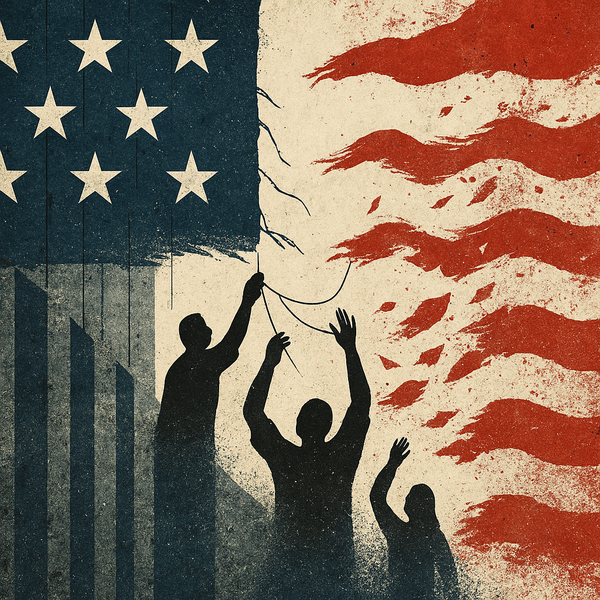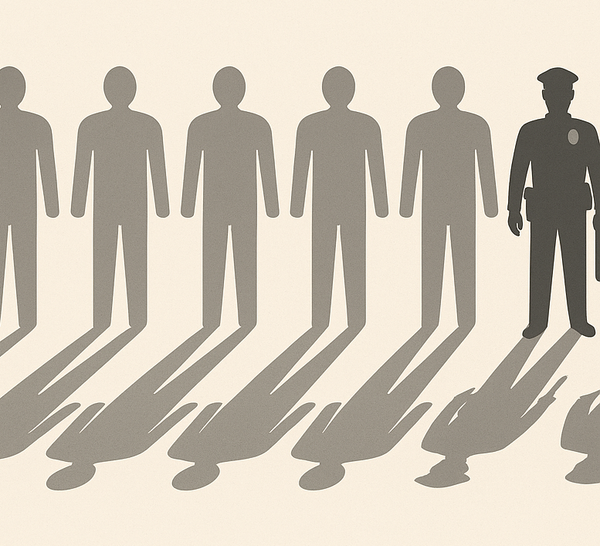The Deflection Game: Why We Can’t Move Forward in American Politics
It happens almost like clockwork.
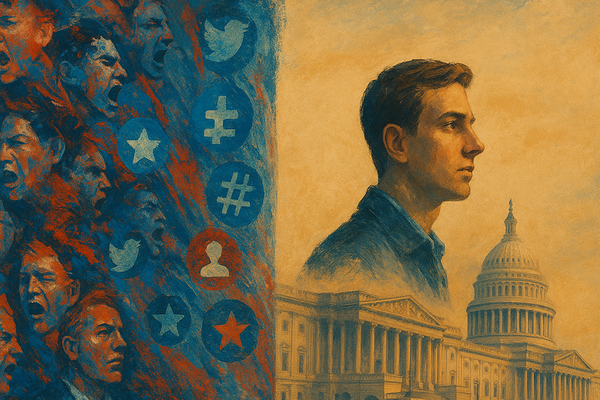
It happens almost like clockwork.
Raise a legitimate critique about today’s political failures — say, the inhumane treatment of migrants, the erosion of voting rights, or economic policies that favor the wealthy — and someone inevitably replies, “Well, what about when the other side did X?”
It’s not a debate. It’s not an explanation. It’s a deflection. And it’s killing our ability to make progress, clouding our public discourse in a fog of evasions and counterpunches that make real solutions feel further and further out of reach.
Can We Please Stay on Topic for Once?
What we’re seeing isn’t new. Psychologists call it “whataboutism,” a rhetorical tactic used to divert attention from the issue at hand by pointing fingers elsewhere. It’s a conversational escape hatch, a way to dodge accountability by shifting the spotlight to someone else’s sins.
And it’s everywhere.
Call out the GOP’s willingness to undermine democratic norms? You’ll hear about Hillary’s emails. Criticize the Democrats for failing to hold corporate power accountable? Suddenly, it’s about Trump’s tax cuts. Mention January 6th, and you’ll be met with references to Black Lives Matter protests. Bring up anti-LGBTQ legislation? You’ll hear about drag shows or Disney.
We’ve gotten so good at pointing fingers at the past that we’ve forgotten to deal with what’s right in front of us. And let’s be honest — sometimes we’re not forgetting. We’re just avoiding it on purpose.
This Didn’t Happen Overnight — We Built This Mess
Part of this problem stems from a deeply tribal political culture. Loyalty to party often supersedes loyalty to principle. That leads people to defend the indefensible simply because “their side” is under attack. We’ve swapped out thinking for cheerleading. Doesn’t matter what’s being said — as long as it’s our side saying it, we’re in.
Another cause is the social media feedback loop, where engagement is rewarded over insight. Outrage outperforms nuance. Deflection gets more likes than difficult truths. The loudest voice often drowns out the most reasoned one, creating a reality where facts are optional and accountability is unpopular.
Cable news has its role, too. Pundits shouting past each other, programming that thrives on binary narratives, and a relentless push for “both sides-ism” all contribute to a culture where false equivalence reigns supreme. If everyone is to blame, then no one is.
Every Time We Look the Other Way, We Lose Something Big
This constant redirection has real consequences. It prevents us from addressing today’s problems with clarity. Instead of asking, “How do we fix this?” we’re stuck arguing about who was worse in 2016, 2020 or 2024. We retreat into familiar arguments, safe in the comfort of pointing fingers.
It erodes trust in institutions. If everyone is equally guilty, then no one is accountable. That’s a dangerous conclusion in a democracy, where the legitimacy of institutions depends on our collective belief in their ability to serve the public good fairly and transparently.
And worst of all, it lowers our expectations. When we normalize deflection, we let our leaders off the hook. We stop expecting them to be better. We excuse bad behavior with “Well, the other side does it too,” and in doing so, we settle for mediocrity, cynicism, and a government that fails to improve people’s lives.
We lose sight of the stakes — that these debates are not just political theater, but have real-world consequences for real people: for families struggling with healthcare, for students burdened by debt, for communities harmed by injustice.
Let’s Stop the BS and Do the Work
We have to break the cycle. That means calling out deflection when we see it. It means saying, “Yes, that happened in the past. But what are we doing now? What are we going to do about the issue today?”
It means holding our own side accountable with the same energy we apply to our opponents. If we only demand virtue from those we oppose, we don’t truly believe in virtue at all — just victory. It means rewarding politicians who answer hard questions, not those who evade them with clever pivots or reheated culture war tropes.
And it means reconnecting with the idea of the common good — a concept that demands we engage in good faith, stay on topic, and keep our eyes on the future. The common good is not partisan. It asks us to care more about solving problems than scoring points.
We must also foster media literacy. Teach people to recognize when conversations are being hijacked by misdirection. Encourage communities to value substance over spin. Support journalism that investigates and explains rather than simply amplifies division.
Enough Finger-Pointing — Eyes Forward, People
The past matters. History informs everything. We need to remember, to learn, to recognize patterns. But if our only move is to point backward, we’ll never go forward. History should help us do better — not give us excuses to keep screwing up.
We deserve a politics that faces forward — one that invites accountability, embraces complexity, and commits to progress.
Let’s start demanding it. Not tomorrow. Now.
